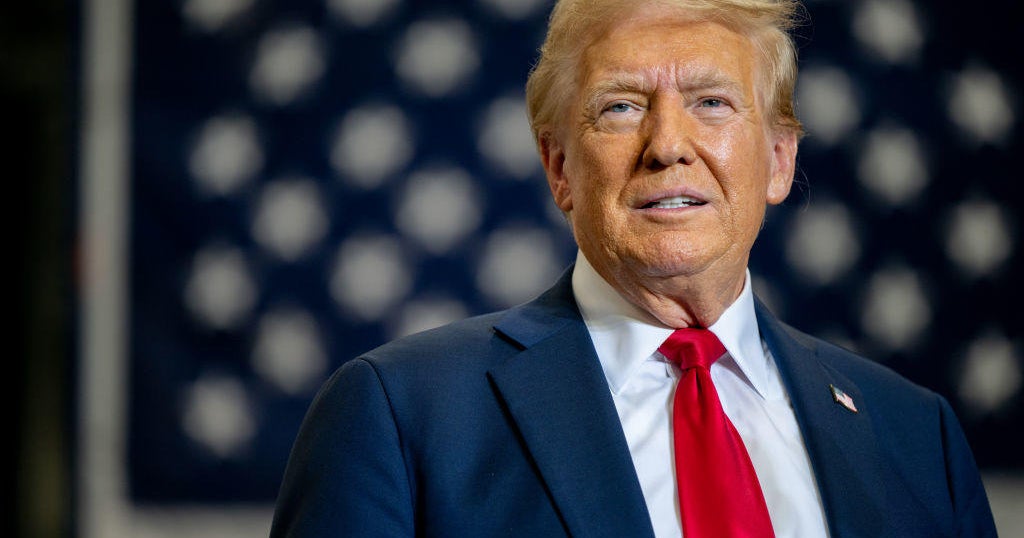
Federal prosecutors have charged three Iranian hackers for allegedly targeting members of former President Donald Trump’s presidential campaign as part of a “wide-ranging” malicious cyber scheme, according to a newly unsealed indictment.
The three defendants — identified in the indictment as Masoud Jalili, Seyyed Ali Aghamiri and Yasar Balaghi — are all members of Iran’s elite Islamic Revolutionary Guard Corps. Prosecutors said they executed a “wide-ranging hacking campaign that used spearphishing and social engineering techniques to target and compromise the accounts of current and former U.S. government officials, members of the media, nongovernmental organizations, and individuals associated with U.S. political campaigns.”
The 37-page indictment, handed down by a grand jury in Washington, D.C., charges the men with 18 counts, including wire fraud, identity theft, conspiracy to provide material support to a terrorist organization and hacking conspiracy.
The charges mark an escalation in the federal government’s work to combat Iran’s alleged efforts to interfere in the 2024 presidential election. The FBI launched investigations earlier this summer after people associated with the Trump and Biden campaigns were the targets of attempted phishing schemes, sources told CBS News in August.
Charging documents do not name the campaign the defendants allegedly targeted on behalf of Iran, but U.S. officials have said Iran is seeking to undermine Trump’s campaign.
“There are few actors in this world that pose as grave a threat to the national security of the United States as does Iran,” Attorney General Merrick Garland said Friday.
Iran and the 2024 election
Last week, federal officials with the FBI and other intelligence agencies released a statement confirming that “Iranian malicious cyber actors in late June and early July sent unsolicited emails to individuals then associated with President Biden’s campaign that contained an excerpt taken from stolen, non-public material from former President Trump’s campaign as text in the emails. There is currently no information indicating those recipients replied.”
The statement went on to say that “Iranian malicious cyber actors have continued their efforts since June to send stolen, non-public material associated with former President Trump’s campaign to U.S. media organizations. … Foreign actors are increasing their election influence activities as we approach November.”
Iran’s United Nations mission previously denied it was interfering or launching cyberattacks in the U.S. presidential election, telling CBS News in a statement last week that “the Islamic Republic of Iran does not engage in the internal uproars or electoral controversies of the United States.” The statement added that Iran “neither has any motive nor intent to interfere in the U.S. election; and, it therefore categorically repudiates such accusations.”
Trump’s campaign revealed last month that it had been hacked and said Iranian actors were involved in stealing and distributing sensitive internal documents to members of the press.
FBI agents worked with both Google and Microsoft to dig into the apparent spearphishing attacks targeting those close to both presidential campaigns, according to two people familiar with the probe. A report published by Microsoft earlier this summer revealed Iran is evolving its tactics to affect the upcoming election.
Trump and former members of his administration have been targets of Iranian actors following the killing of Iranian military commander Qassem Soleimani in 2020. Some former officials received increased protection because of death threats, and in July, federal prosecutors filed charges against a Pakistani national with ties to Iran for allegedly planning to assassinate American politicians, including possibly Trump.
Iran is not the only foreign adversary that U.S. officials say is seeking to undermine the upcoming presidential election. Intelligence agencies have warned Russia and China have launched cyber campaigns of their own to sew chaos, with Russia allegedly seeking to damage Vice President Kamala Harris’ bid for the White House.
Speaking at an event hosted by the Atlantic Council on Thursday, Deputy Attorney General Lisa Monaco said the U.S. is “seeing more threat actors getting into the game” of election interference, fueled by advancements in artificial intelligence.
The goal, according to Monaco, is to “sow discord, sow distrust in our election system and undermine confidence in our democratic process.”
